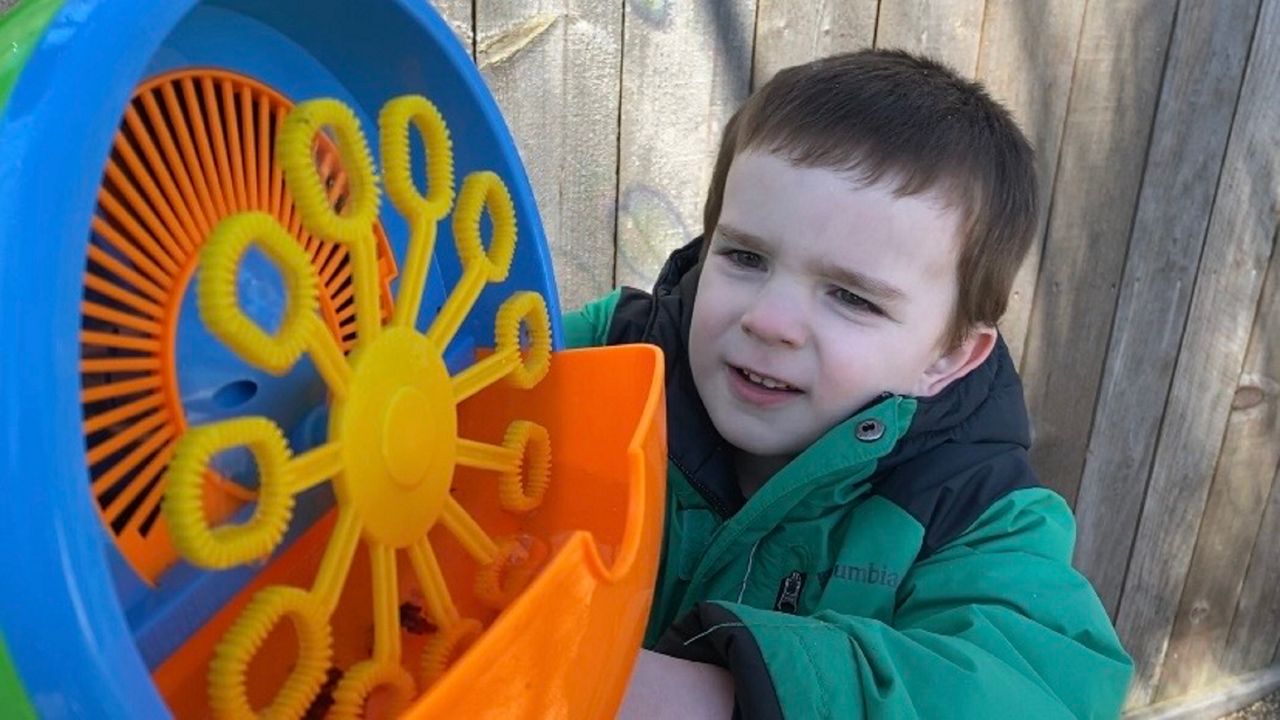SHEFFIELD LAKE, Ohio — One in 54 children in the United States is living with an autism spectrum disorder.
That’s according to the Centers for Disease Control and Prevention (CDC) and April 2 is World Autism Awareness Day. April is World Autism Awareness Month.
Four-year-old Finnegan Jones loves PB&J, playing outside, cars, bubbles, and his two little sisters, Aelish and Mairead.
“He loves being a big brother,” his mother, Mary Jones said.
Oh, and Finn isn’t camera shy.
“Say cheese!" he repeated with a smile whenever he saw the camera during our interview at their Sheffield Lake home.
But just about all of these things are surprising to his parents, Mary and Jeff Jones.
“He is just an amazing kid,” Mary Jones said.
When Finn was two, he was diagnosed with autism.
“I was devastated because I was worried about his future, but like that doesn’t change him,” Mary Jones said.
One of their main concerns was that he was an extremely picky eater, so much so that he wasn’t really eating or gaining weight.
“Most of his diet was mostly starches,” she said.
He also struggled to socialize and express himself verbally. He couldn’t write much either.

The Joneses say the brave and outgoing boy they see today is "night and day" different from just two years ago.
“He like overdoes it now where you have to stop it sometimes,” his father said. “It’s crazy the difference.”
The feeding program he started in occupational therapy in November has helped a lot.
“We’re not as stressed,” Mary Jones said.
Finn has even started writing his name in chalk.
“So impressed,” his mother said. "Really excited for his future and what else he can show us.”
The Jones family wants others to know there is hope and autism doesn’t define any child. In fact, it’s just one part of Finn. It's just one thing that makes him special.
“I’m very, very proud,” she said.
“One of our main worries initially was like we hoped he could fit in with everybody and social norms and everything like that. But now after seeing this and the progress in this little amount of time, I have no worry in the world at all anymore,” Jeff Jones said.
Finn’s occupational therapist, Jennifer Negrey, said she's been helping him with eating, fine motor, and sensory processing skills. She said his progress is promising.
“I think Finn is a great success story and I think highlighting stories where you see a child doing these things and making wonderful progress and success is great so parents know that, yes, intervention works, it helps. These kids can grow up and live very meaningful happy lives," Negrey said.
Negrey, who works at the Cleveland Clinic Children’s Hospital for Rehabilitation, said in order to tell the difference between a "picky eater" and a child who isn't eating properly, it’s vital to talk to a pediatrician.
Negrey said it’s better to voice concern early because poor eating habits are harder to break the longer you wait.
“We get a lot of kids who eat less than 10 foods. And that's when I say that's a pretty big problem that is very limiting. If you're finding yourself having to make separate meals every day for your child, that's concerning. If you can't go out as a family to eat a meal in a restaurant without your child being able to order something on the kids' menu, that's interfering with your daily life,” she said.



